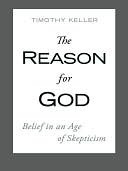More on this book
Community
Kindle Notes & Highlights
Read between
March 2 - March 6, 2024
The people most passionate about social justice were moral relativists, while the morally upright didn’t seem to care about the oppression going on all over the world.
Nevertheless, we launched Redeemer Presbyterian Church, and by the end of 2007
Believers should acknowledge and wrestle with doubts—not only their own but their friends’ and neighbors’.
What is religion then? It is a set of beliefs that explain what life is all about, who we are, and the most important things that human beings should spend their time doing.
Jesus assumes that nonbelievers in the culture around them will gladly recognize much Christian behavior as “good” (Matthew 5:16; cf. 1 Peter 2:12).
Evil and Suffering May Be (If Anything) Evidence for God
Therefore, though Christianity does not provide the reason for each experience of pain, it provides deep resources for actually facing suffering with hope and courage rather than bitterness and despair.
The answer of Christianity to that question is—yes. Everything sad is going to come untrue and it will somehow be greater for having once been broken and lost.
True freedom is freedom to create your own meaning and purpose.
To “see through” all things is the same as not to see.
the reputation for being inclusive and the second for being exclusive, but, in practice, both of them operate in almost the very same way. Each is based on common beliefs that act as boundaries, including some and excluding others. Neither community is being “narrow”—they are just being communities.
We cannot consider a group exclusive simply because it has standards for its members.
liberating restrictions.
For a love relationship to be healthy there must be a mutual loss of independence. It can’t be just one way. Both sides must say to the other, “I will adjust to you. I will change for you. I’ll serve you even though it means a sacrifice for me.” If only one party does all the sacrificing and giving, and the other does all the ordering and taking, the relationship will be exploitative and will oppress and distort the lives of both people.


